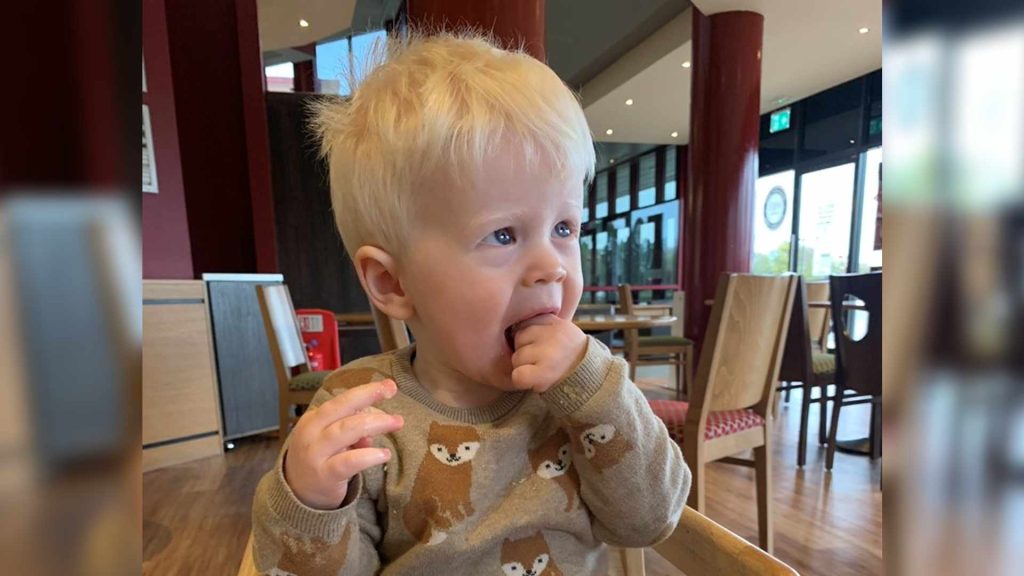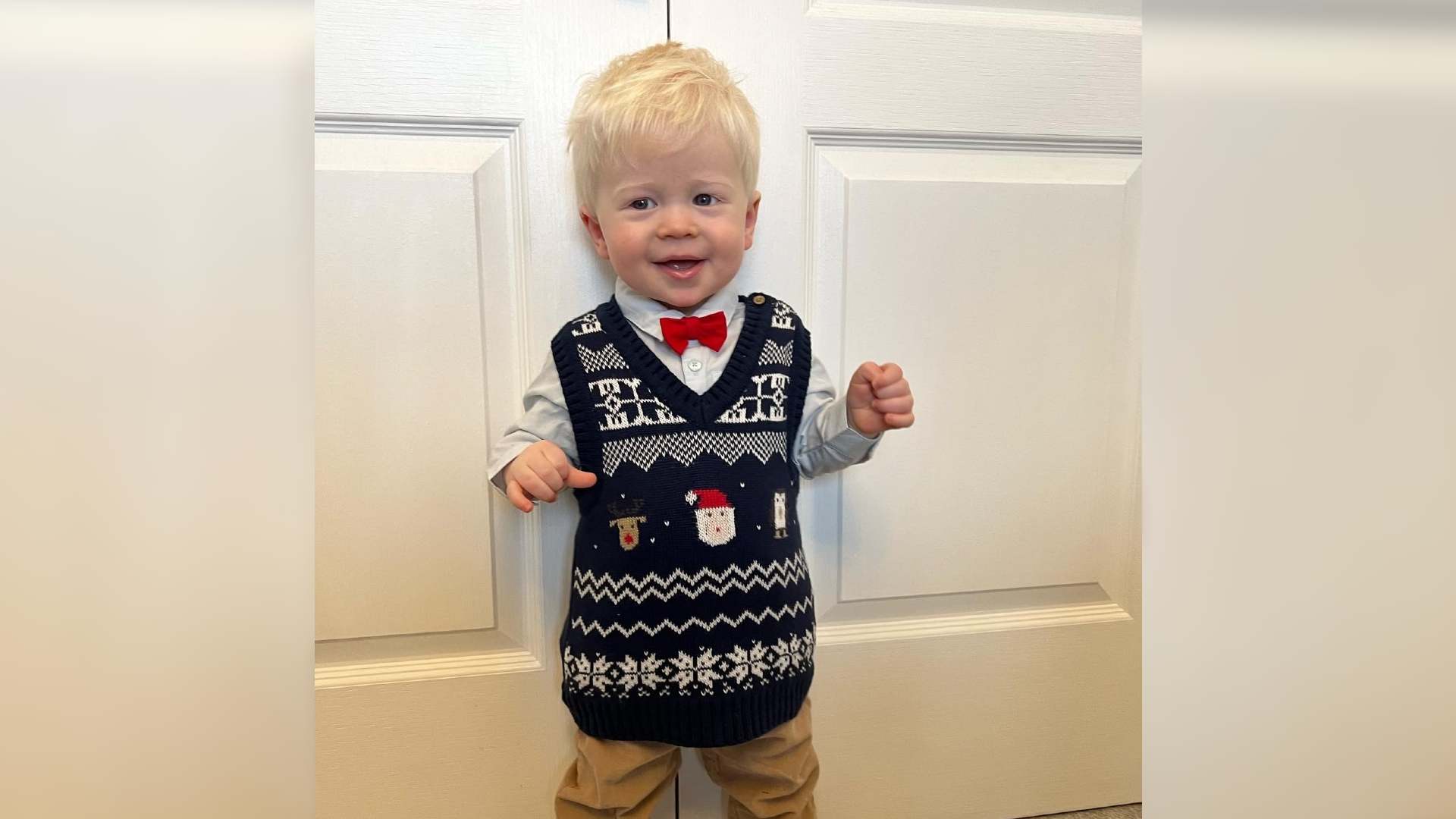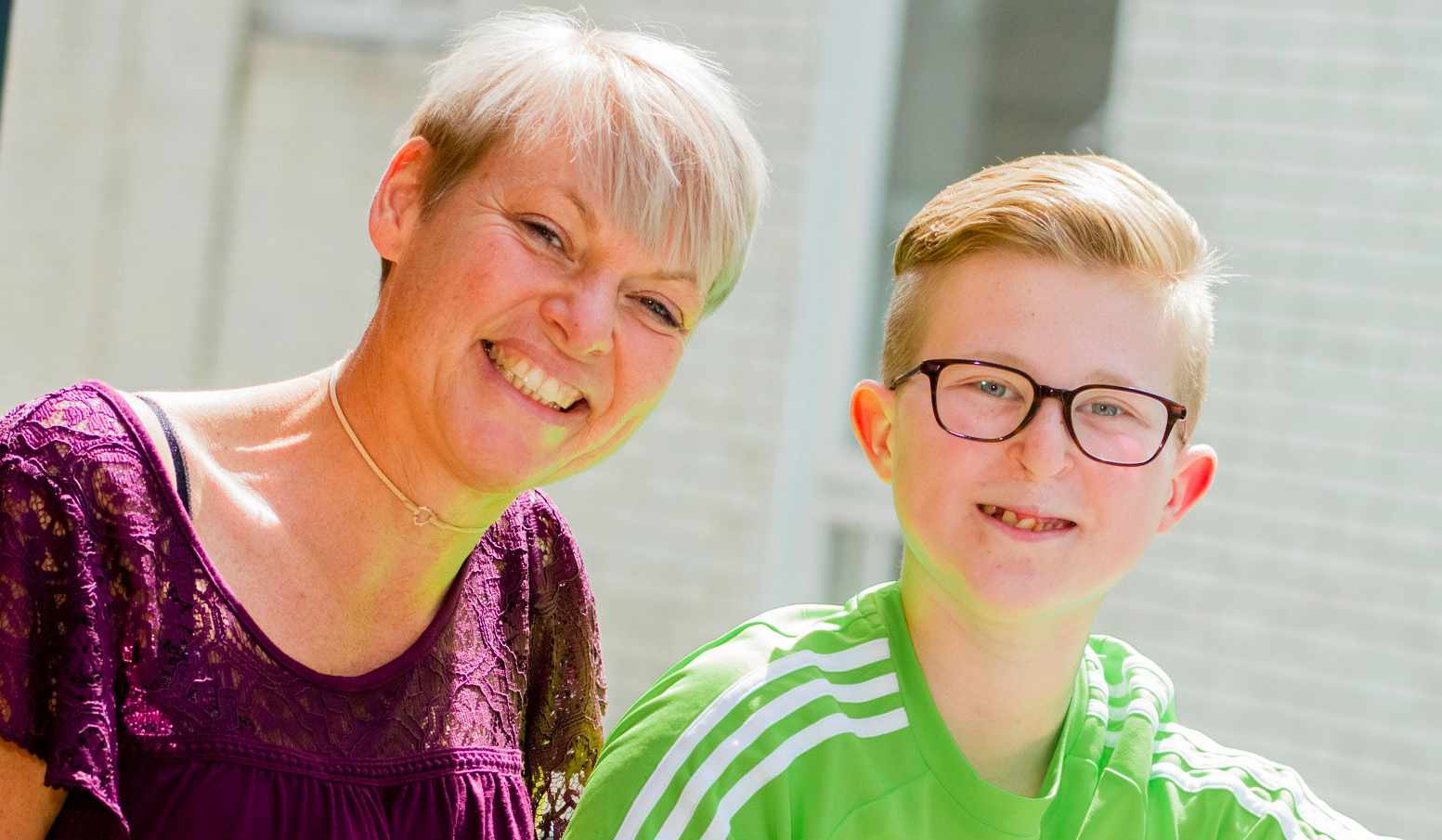I’m Gemma and my son is called Archie – he is one-year-old and was born with albinism.
When I learnt that Archie had albinism, I went into a type of grieving process. Denial and anger were my main emotions for a long time. Coming to terms with the fact that your child has a disability that will impact them throughout their life is incredibly difficult.
At first, I didn’t like to speak about it. If people commented on Archie’s hair colour, I would just joke about it having absorbed the dye I used on my own hair. However, as he’s got older, people’s curiosity is something we have to deal with whenever we go out.
Teaching others and taking away the taboo makes me feel in control, and I will pass this mindset on to Archie.
These interactions used to break my heart. There was one time when we were travelling on a bus, and I noticed a woman looking into Archie’s pram before nudging her husband and nodding towards Archie. Not knowing what people are thinking when they do this sort of thing is hard, and while it does get easier to cope with, it’s still upsetting.
One of the most frustrating reactions has been when people apologise to me for Archie’s albinism. I have felt many feelings since Archie was born, but not once have I felt sorry for myself. If you look up “sorry” in the dictionary, it says, “Feeling sad or distressed through sympathy with someone else’s misfortune”. Archie is in no way my “misfortune”. Sorrow isn’t an emotion anyone needs in a time of uncertainty, instead, we need people to help us find strength.
I have reacted with anger towards people’s reaction in the past, and I regret this. Anger isn’t good for me. Now I choose to educate others about Archie’s condition. Even health professionals I’ve spoken to haven’t known much about albinism, with Archie being the first person they’ve met with it. Some even end up Googling it! Teaching others and taking away the taboo makes me feel in control, and I will pass this mindset on to Archie.

Archie’s mum hopes people will become more accepting of difference
The support of my friends, family and the NHS has been so important while we’ve been navigating Archie’s condition. No building can stand without bricks, and our bricks have not only reminded us how strong we are alone, but how much stronger we are with them around us.
Visual impairment is part of Archie’s albinism, so we have sought the support of a visual impairment teacher. She comes to visit once a month and is absolutely amazing. I almost cried during our first meeting – she was so understanding.
She’s taught us lots of fun games that we can play to help Archie with his development. She’s also opened opportunities for me to do some courses. These have not only helped me mentally but also helped me to meet families like my own, which is a huge game changer.
To other parents of children with a visible difference, please take a moment to process and allow yourself to breathe.
As Archie grows up, I hope he will be able to be like everyone else, with the world adapting to include everyone with a visible difference and disability. I am worried about what will happen when Archie goes to school. Children can be cruel and I’m not sure how I would handle it if I found out that he was being bullied. I hope that he can help others to become more accepting of difference.
I have written a few children’s books inspired by Archie, which focus on diversity. Reaching children early with these messages of inclusion is vital, and it would be brilliant if more schools included these teachings in their curriculum.
To other parents of children with a visible difference, please take a moment to process and allow yourself to breathe. In the beginning, it is scary, and it’s okay to feel these emotions, but eventually you do have to step up and become the guide our little heroes need in the world. Know that they will be okay, because they have you.
Each day is a new challenge. I’ve had to fight for every single medical appointment for my son. There’s very little support in place for people with visible differences and this can be overwhelming. It would make a huge difference if more health professionals could signpost parents to organisations like Changing Faces. Being able to access different forms of support is vital.
Change needs to be made at the top – we need to be seen. I have recently been in contact with our local MP, and I am eagerly awaiting what has been discussed, and what plans they have to improve support.
Whoever says you can’t, doesn’t know how much you can.

